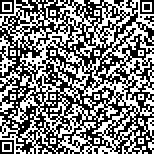| 引用本文: |
邵乐,夏相宜,王宇红,蔡光先,佘颜.补阳还五汤精简方对氧化应激损伤血管内皮细胞的保护作用研究[J].湖南中医药大学学报,2019,39(2):163-167[点击复制] |
|
| |
|
|
| 本文已被:浏览 3591次 下载 1265次 |
| 补阳还五汤精简方对氧化应激损伤血管内皮细胞的保护作用研究 |
| 邵乐,夏相宜,王宇红,蔡光先,佘颜 |
| (湖南中医药大学第一附属医院, 湖南 长沙 410007;湖南中医药研究院附属医院, 湖南 长沙 410013;湖南中医药大学医学院, 湖南 长沙 410208) |
| 摘要: |
| 目的 观察补阳还五汤精简方对氧化应激损伤后血管内皮细胞的保护作用,并从核转录因子E2相关因子/抗氧化反应元件(NF-E2-related factor 2/ antioxidant response element,Nrf2/ARE)途径探讨其作用机制。方法 采用H2O2作用大鼠血管内皮细胞4 h建立体外血管内皮细胞氧化应激模型,根据不同处理分成正常组,模型组,补阳还五汤含药血清组(补阳组),补阳还五汤精简方含药血清组(5%精简组、10%精简组、20%精简组)6组。采用倒置显微镜观察细胞形态;流式细胞术检测血管内皮细胞调亡;测定细胞SOD活力、MDA含量;采用Western blot法检测细胞Nrf2、血红素加氧酶-1(HO-1)蛋白的表达。结果 与模型组比较,含药血清组均能不同程度改善细胞形态,升高细胞存活率,其中10%精简组较5%精简组、20%精简组细胞损伤程度低;与模型组比较,补阳组和10%精简组可有效抑制细胞凋亡(P<0.05);与模型组比较,补阳组及10%精简组可显著提升SOD活力(P<0.01);补阳组、10%精简组及20%精简组可降低MDA含量(P<0.05);补阳组及10%精简组可明显上调Nrf2、HO-1蛋白表达(P<0.05)。结论 10%补阳还五汤精简方可以显著减轻氧化应激造成血管内皮细胞的损伤,抑制细胞调亡,这一作用可能与上调Nrf2/ARE抗氧化信号通路途径表达有关。 |
| 关键词: 补阳还五汤精简方 氧化应激 血管内皮细胞 核转录因子E2相关因子2 血红素加氧酶-1 |
| DOI:10.3969/j.issn.1674-070X.2019.02.004 |
| 投稿时间:2018-07-13 |
| 基金项目:国家自然科学基金(81603415);湖南省自然科学基金(2017JJ3231);湖南省中医药管理局重点项目(201820);湖南省教育厅一般项目(15C1034、17C1648) |
|
| Protective Effect of Thin Recipe of Buyang Huanwu Decoction Against Oxidative Stress Injury in Vascular Endothelial Cells |
| SHAO Le,XIA Xiangyi,WANG Yuhong,CAI Guangxian,SHE Yan |
| (The First Affiliated Hospital of Hunan University of Chinese Medicine, Changsha, Hunan 410007, China;The Affiliated Hospital of Hunan Academy of Chinese Medicine, Changsha, Hunan 410006, China;Medical College of Hunan University of Chinese Medicine, Changsha, Hunan 410208, China) |
| Abstract: |
| Objective To investigate the protective effect of thin recipe of Buyang Huanwu Decoction on vascular endothelial cells after oxidative stress injury and its mechanism of action based on the nuclear factor-erythroid 2-related factor 2 (Nrf2)/antioxidant response element (ARE) pathway. Methods Rat vascular endothelial cells were treated with H2O2 for 4 hours to establish an in vitro model of oxidative stress in vascular endothelial cells, and according to the treatment method, the cells were divided into normal group, model group, serum containing Buyang Huanwu Decoction group (Buyang group), and serum containing thin recipe of Buyang Huanwu Decoction groups (5%, 10%, and 20% thin recipe groups). Inverted microscopy was performed to observe cell morphology; flow cytometry was used to measure the apoptosis of vascular endothelial cells; the activity of superoxide dismutase (SOD) and the content of malondialdehyde (MDA) were measured; Western blot was used to measure the protein expression of Nrf2 and heme oxygenase-1 (HO-1) in cells. Results Compared with the model group, the drug-containing serum groups had varying degrees of improvement in cell morphology and an increase in cell survival rate, and the 10% thin recipe group had a lower degree of cell injury than the 5% and 20% thin recipe groups. Compared with the model group, the Buyang group and the 10% thin recipe group had significant inhibition of cell apoptosis (P<0.05) and a significant increase in the activity of SOD (P<0.01). The Buyang group, the 10% thin recipe group, and the 20% thin recipe group had a significant reduction in the content of MDA (P<0.05). The Buyang group and the 10% thin recipe group had significant increases in the protein expression of Nrf2 and HO-1 (P<0.05). Conclusion The 10% thin recipe of Buyang Huanwu Decoction can significantly reduce oxidative stress injury in vascular endothelial cells and inhibit cell apoptosis, possibly by upregulating the expression of the Nrf2/ARE antioxidant signaling pathway. |
| Key words: thin recipe of Buyang Huanwu Decoction oxidative stress vascular endothelial cell nuclear factor-erythroid 2-related factor 2 heme oxygenase-1 |
|

二维码(扫一下试试看!) |
|
|
|
|




